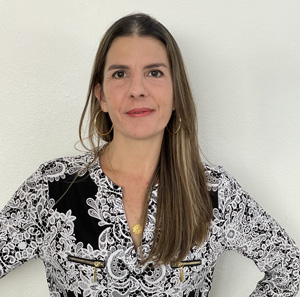CPA Society president addresses Puerto Rico’s tax reform challenges

During the past month and a half since becoming president of the Puerto Rico Society of Certified Public Accountants, Edmy Rivera-Colón has addressed numerous issues related to the substitute tax reform.
“Which is not really a reform and we have maintained that our position, our vision, is to look after the socioeconomic development of Puerto Rico, and for us it’s very important that the tax ordinance is one that boosts jobs, is easy to comply with, and we are focusing on three main points,” Rivera-Colón said in an interview with News is my Business. “To make a tax system that is easy to comply with, making it easier for businesses in Puerto Rico.”
Furthermore, she said that to make Puerto Rico more competitive, the tax rates need to be balanced or lowered “to make Puerto Rico more competitive at a global level; we are the second nation with the highest tax rates.”
“And, reducing individuals’ tax rates who already make contributions to the treasury so those tax rates should be more equitable,” she said. “Those are some of the points [being touched on]; we have also issued our opinion with regard to the inventory tax. That is what is currently being handled at both the House and the Senate that I believe were passed, but need to go to the governor and then the Financial Oversight and Management Board.”
She said her main concern about the substitute tax reform is that if these points are not reached, the process of making Puerto Rico more competitive would be delayed.
“I know some agreements have been reached. We were part of the governor’s advisory group, participating as a guild, and our recommendations were endorsed,” Rivera-Colón said, noting that the CPA Society is now waiting for the financial oversight board’s opinion.
Last week, the fiscal panel said it believes that tax reform is essential for Puerto Rico’s return to sustainable economic growth.
“Effective tax reform must be comprehensive, holistic and for the long-term,” the FOMB said in a statement. “The Oversight Board analyzed the substitute to House Bill 1839 that the Legislative Assembly passed last night. The bill, one of the largest tax cuts in Puerto Rico’s recent history coming only a year after emerging from bankruptcy, would reduce government revenues by about $750 million this fiscal year and by almost $3 billion over five years.”
The board urged the legislature not to send the bill to the governor for enactment.
Meanwhile, the CPA Society continues to make recommendations to the government on how to improve the local economy, Rivera-Colón said.
“We are working on this already; the committee of public policy is meeting,” she said. “We have had several meetings; we are consolidating what the report or recommendations to the gubernatorial candidates will be.”
She said that by next summer the association will be able to make those recommendations public and send them to the gubernatorial candidates.
“In August 2024 we are having the convention and we will be carrying out the encounter with the gubernatorial candidates where we will be gathering their input and see how they will adopt these recommendations in their work plans,” Rivera-Colón added.












